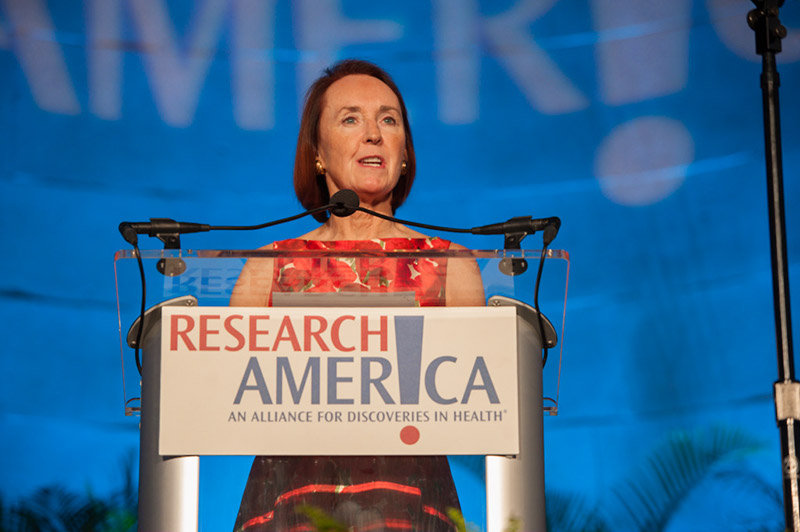Then and Now

Dear Research Advocate,
Advocacy Then and Now: This letter marks #500 since I began this weekly conversation with you. In the first letter, I spoke out against the Budget Control Act and the severe funding caps it would (and did) impose on strategic imperatives like research. You joined with us to help secure modifications to those budget caps to enable funding increases for NIH and other research agencies. Advocacy works.
Now, hundreds of letters later, the FY22 budget cycle is about to begin: reports are that President Biden will release the first details of his FY22 budget request next week, to be followed by a more detailed budget later this spring. It was heartening to hear the President say, during his first news conference held earlier today, that he supports more medical research!
Regardless of the funding levels the President puts forth, there is little doubt that some Members of Congress will target non-defense discretionary (NDD) spending for the purpose of deficit reduction. As the role of NDD-funded agencies in the COVID-19 response so compellingly demonstrates, cutting NDD funding would be a strategic misstep. Stay tuned for relevant advocacy opportunities.
Supplemental Research Funding: Yesterday we sent President Biden a multi-organization letter requesting that he champion the supplemental research funding proposed in the Research Investment to Spark the Economy (RISE) Act (H.R.869/S.289). The letter also emphasizes the need for maximum administrative flexibility until additional funding is available. Thank you to the more than 200 (!) organizations that signed on. (Note: we are sending an addendum on Monday with additional signatories; email Ellie at edehoney@researchamerica.org to add your organization.)
The NIH funding level specified in the RISE Act is $10 billion, but reportedly, NIH now estimates the negative impact on grant funding to be in the $16 billion range. Our nation cannot turn a blind eye to the short- and long-term effects of dramatically weakened research capacity and output. The American people understand this; they want faster progress, not science setbacks. In fact, according to a public opinion survey we commissioned this January, 75% of Americans favor doubling spending on medical research. Use this editable email and tweet to reinforce the need for supplemental research funding.
Senate Confirmation: This week, the Senate confirmed Dr. Vivek Murthy as U.S. Surgeon General. Read our statement in support of this esteemed public health leader here.
A Solid Path for Progress: Research!America is proud to support the American Cures Act, legislation Senate Majority Whip Dick Durbin (D-IL) reintroduced this week along with six original cosponsors. This important bill would ensure solid growth in medical and health research, leveraging mandatory funds to provide annual budget increases of 5% plus inflation for NIH, CDC, the Department of Defense Health Program, and the Veterans Medical and Prosthetics Research Program.
Learning from COVID-19: Research!America Board Member Dr. Harold Paz, Executive Vice President and Chancellor for Health Affairs at The Ohio State University, recently discussed how the pandemic has caused the health care industry to reevaluate existing procedures to better serve patient needs. Capturing and applying the lessons of COVID-19 should be a national priority, as Research!America’s Science Policy Fellow, Dr. Keila Miles, argues in this timely opinion piece.
Upcoming Alliance Member Meeting: On Thursday, April 1, 2021 at 2:00 p.m. ET, we are holding a special alliance member meeting with two guest speakers: Dr. Shannon Zenk, Director of the National Institute of Nursing Research (NINR), will share insights on the unique and evermore significant role nursing research plays in health and health care. MIT’s David Goldston will also join us to discuss the Schumer/Young Endless Frontier Act, a soon-to-be-reintroduced bill aiming to significantly bolster our nation’s technological capabilities. Note that the link is to the bill introduced in the 116th Congress; David will discuss potential modifications in the new version.
Stay well, stay safe, and stay connected.
Sincerely,
Mary Woolley




